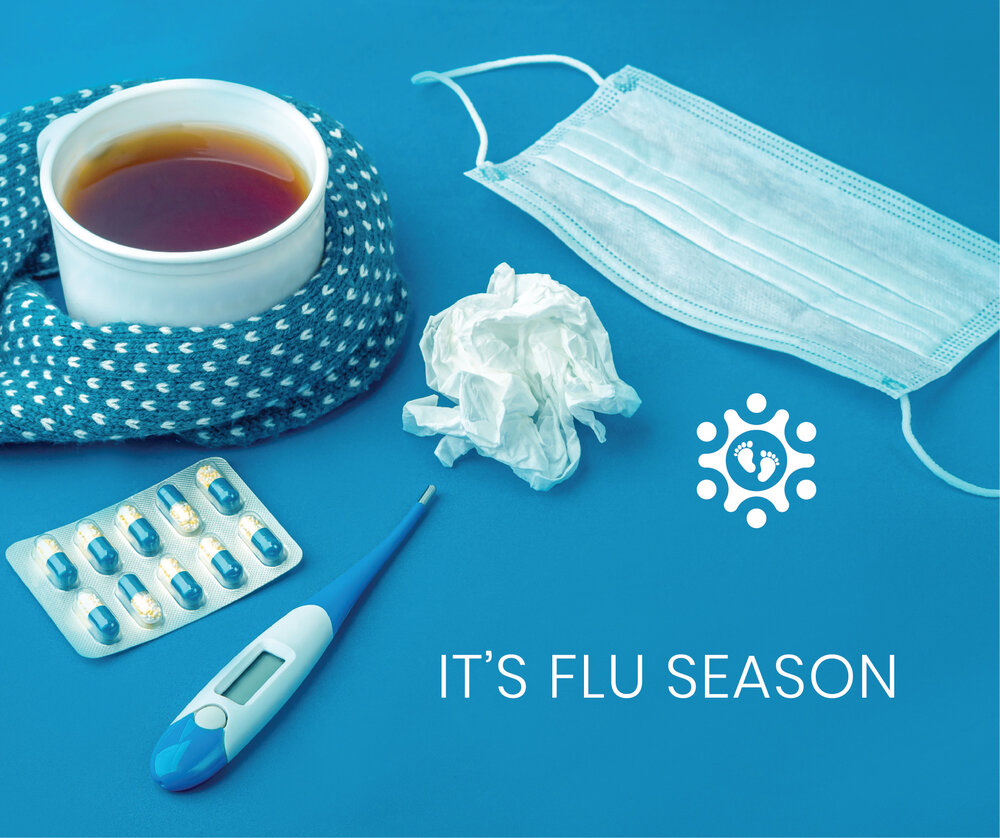Getting A Flu Shot During Pregnancy: Is It Safe?

With flu season among us, you may be wondering about the safety of getting a flu shot. Is it safe for you? Is it safe for your baby? The answer is yes!
The Centers for Disease Control and Prevention, CDC, clarifies that pregnant women should get the flu shot. There are two different ways to get the flu vaccination. The first is through a flu shot, which the CDC recommends, and the second is a nasal spray. According to the CDC, the nasal spray, a live vaccine containing live viruses that have been altered not to cause disease, is not recommended during pregnancy but is safe during other times.
Pregnant women have a higher risk of developing complications from the flu due to the changes in their immune system. By getting a flu shot, the vaccine helps mom as well as baby. The protective antibodies are made in the mother’s body, which are then transferred to the baby, which will protect the baby until they are old enough to get the shot themselves at six months old.
Symptoms of the flu
Symptoms of the flu may mimic a cold but are worse. These symptoms include:
- Fever
- Chills
- Headache
- Fatigue
- Muscle aches
- Coughing
- Sore throat
Risks due to the flu during pregnancy
Pregnant women have a higher risk of developing complications. The flu stresses your heart and lungs and can affect your immune system. Because of that side effect, some additional risks include:
- Pneumonia
- Preterm labor
- Preterm birth
- Hospitalization
- Death
Ways to protect yourself from getting the flu
- Wash your hands frequently
- Stay away from others who are sick.
- Avoid touching your eyes, nose, and mouth.
- Get plenty of sleep
- Eat healthily
- Drink plenty of fluids
The American College of Obstetrics and Gynecologists states that getting a flu shot is safe during your pregnancy, and if you are breastfeeding. Most women will choose to get the shot during flu season; however, if you have heart disease or asthma, it’s best to get the flu shot before flu season begins.
If you do get the flu while pregnant or within two weeks of delivering, contact your obstetrician or physician right away. They can prescribe an antiviral medication, such as Tamiflu. This medication is most effective if taken within 48 hours. If the time has passed, you’re still able to see the benefits of taking an antiviral medication up to 5 days after symptoms have started. Taking a prescription won’t cure you of the flu, but it can shorten the length and severity.
A common question with pregnant women is, “Can the flu shot stop COVID-19?”
With the spread of COVID-19 and some similar flu symptoms, it’s no surprise that this question continues to be asked. According to Harvard Health, the answer is no; it does not prevent COVID-19.
If you have additional questions or concerns about the flu vaccination, contact your physician or obstetrician.


